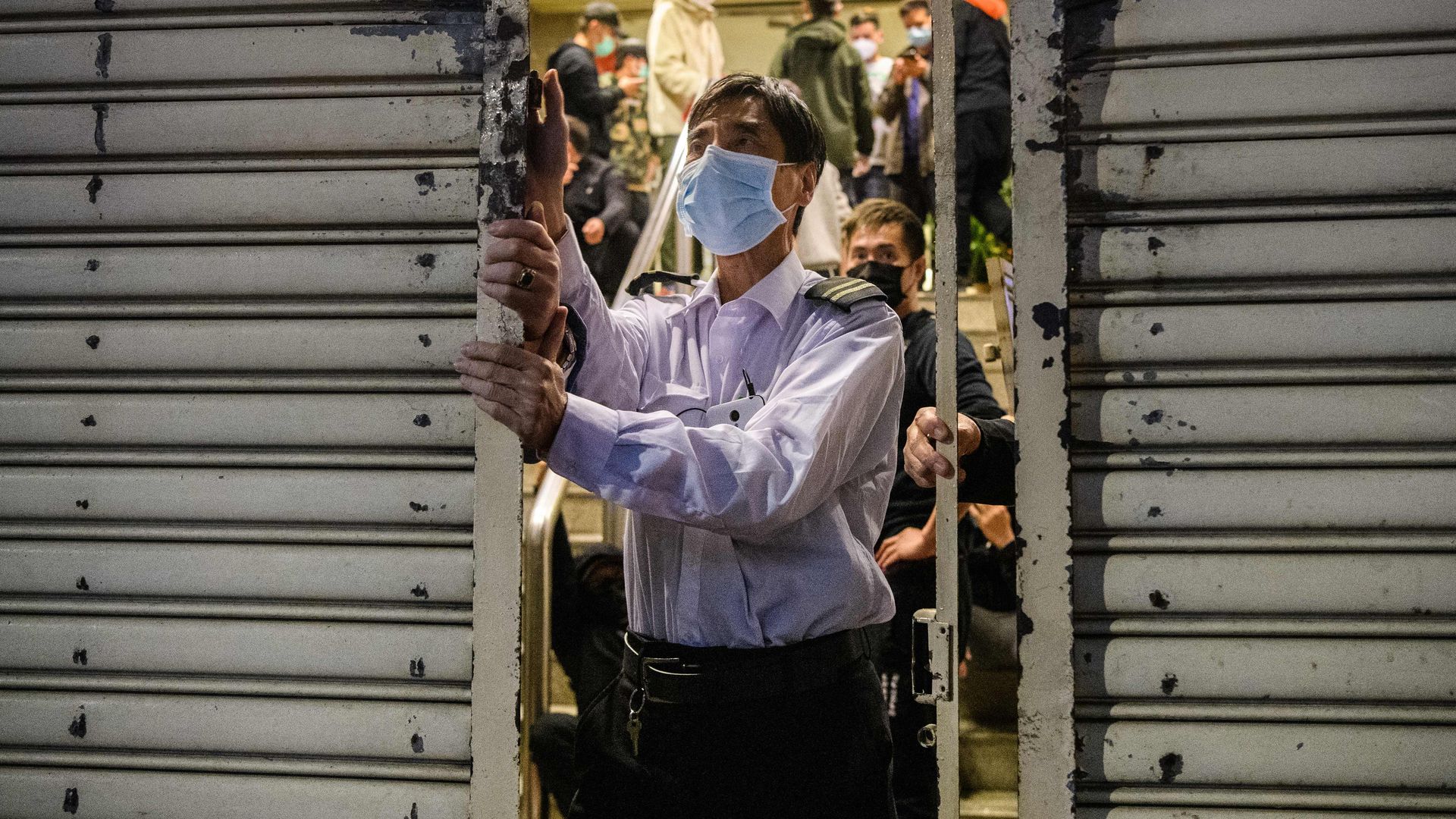Economists warn coronavirus risk far worse than realized
Add Axios as your preferred source to
see more of our stories on Google.

Photo: Anthony Wallace/AFP via Getty Images
Worries are growing that the economic impact from the novel coronavirus outbreak will be worse than expected and that markets are being too complacent in factoring it in as a risk.
What's happening: The number of confirmed cases has already far outpaced expectations and even those reports are being viewed through a lens of suspicion that the Chinese government is underreporting the figures.
- Yet, U.S. stock indexes have continued to hit all-time highs, bond spreads remain compressed, and even some Asian bourses have recouped losses that followed the initial coronavirus headlines.
Driving the news: Of the 364 companies that have held Q4 earnings calls, 138 cited the term “coronavirus” during the call, and about 25% of those included some impact from the coronavirus or modified guidance due to the virus, according to FactSet.
- Apple was the latest, saying Monday it would not meet quarterly revenue expectations due to limited iPhone production and Chinese demand.
What they're saying: "This will eventually end badly. I have never in my career seen anything as crazy as what’s going on right now," Scott Minerd, global CIO of Guggenheim Investments, writes in a note. "The cognitive dissonance in the credit market is stunning."
He's not alone: "The ramp up in China will take much longer than many expect because of the need to prevent a secondary flare up in contagion," Diane Swonk, chief economist at Grant Thornton, said on Twitter.
- She echoed concerns from Allianz chief economic adviser Mohamed El-Erian.
The state of play: "By most estimates, if the Chinese extend the lunar new year by two weeks it would not meaningfully impact the global supply chain, but if it went beyond two weeks then we would start to see problems for materials and consumer goods outside of China," Minerd argues.
Between the lines: It's been about two weeks and things don't look great.
- Hong Kong, already coping with the economic damage from its months-long protests, now is facing wide-ranging shortages of basic household and cooking supplies.
- High-tech industrial parks in Chinese manufacturing hubs like Shenzhen have just reopened but are facing a "severe" worker shortage, as many are stuck in their hometowns and factories remain idle.
Details: Minerd predicts that the "impact of all this on corporate profits and free cash flow will be dramatic," warning that China's first quarter GDP could fall as low as -6% annualized in the first quarter and oil could drop to $25 a barrel.
The bottom line: "We are either moving into a completely new paradigm, or the speculative energy in the market is incredibly out of control," Minerd says.
- "I think it is the latter. I have said before that we have entered the silly season, but I stand corrected. We are in the ludicrous season."
Go deeper: Apple will miss quarterly earnings estimates due to coronavirus
